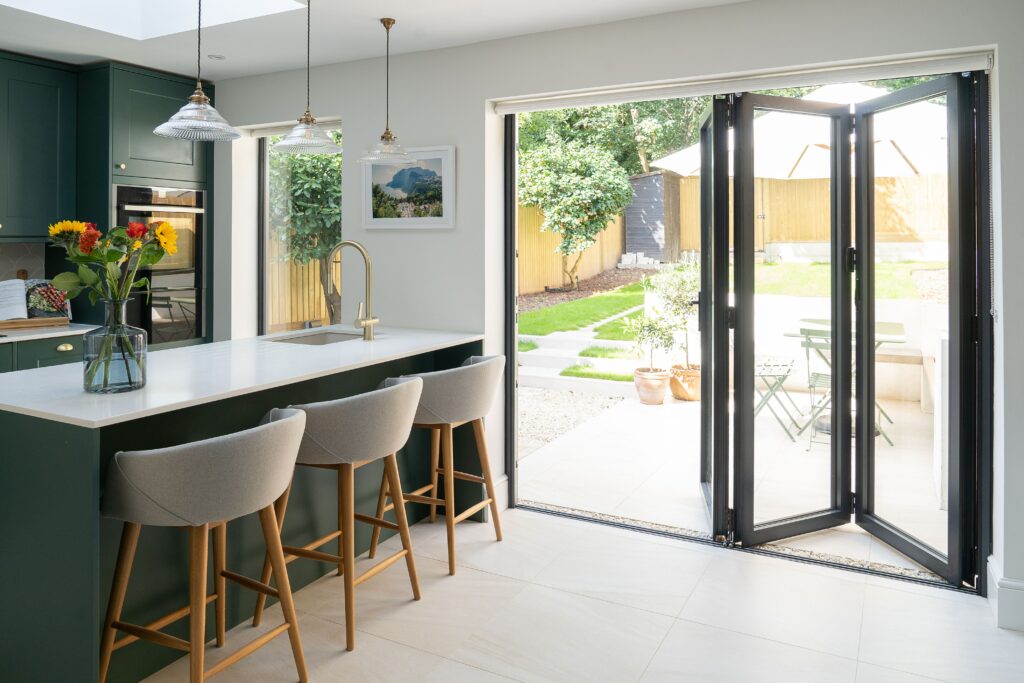Strong yet lightweight, environmentally friendly while offering superior style – it’s fair to say aluminium is the material of choice within construction, architecture and engineering.
Aluminium’s many glowing properties are why it is a popular choice for windows and doors, which is something we specialise in here at ABS.
But did you know that aluminium has a history dating back to the 5th century? Shaped by the usage of its compound alum, the Greeks were the first known users of aluminium. It was the perfect material to protect fortresses from enemy arson as it offered a fire-resistant coating for wood.
In today’s world, your ‘fortress’ is perhaps more like your family home or commercial building, and the ‘enemies’ you wish to guard it against are probably the likes of high energy bills, noise pollution or even a poor visual look which may reduce your property price. Luckily, aluminium is just as good as a defender for these issues and more, as it was back then in Ancient Greece.
So now you know when aluminium was first used, here is why it remains a top choice even in the present day.
Why aluminium is used and remained valuable

Building materials have come and gone over the years. If you consider that even asbestos was still being regularly used until it was banned in 1989, it’s clear that not all building materials have stood the test of time in terms of health, safety or performance. As faults have been discovered, new materials have replaced the old. Though, this is not the case with aluminium. That’s because aluminium really is difficult to fault, let alone improve upon.
Aluminium was first used within industrial production back in 1859 when French chemist Henri Étienne Sainte-Claire Deville announced a new method of production for aluminium that would see it being used for the first time in the ways we are more familiar with today. Aluminium is now used in a number of different industries and environments including automotive, the solar industry, medicine and many more.
Most of the aluminium in existence today is made from recycled materials, as aluminium has an infinite lifespan. It can be melted down and reused for a variety of projects. Aluminium can also have an architectural powder coating applied which protects the material while adding a stylish finish. Best of all, aluminium is a lightweight material (unlike steel for example), and it also provides superior strength.
Find out more on the difference between aluminium and steel here.
So why does all of this matter? When choosing building materials, it’s essential to have confidence in that material not just now but over the lifespan of that material. Aluminium has been used almost since the beginning of civilisation. It’s not a fad, a cheap alternative or an unknown material. It’s tried, tested and trusted. Therefore, aluminium remains a solid choice for any construction or renovation project including aluminium windows and doors.
Aluminium Windows And Doors UK – ABS
It’s fair to say aluminium has an exceptional history that has seen it used for many purposes throughout the ages.
In modern times, aluminium is widely used in construction and engineering, including in domestic and commercial projects. Aluminium has endless benefits including excellent longevity and is suitable for a wide range of purposes and environments.
Here at ABS, we’re a leading manufacturer of aluminium windows and doors. Based in Nottinghamshire, we operate across the UK and produce our aluminium windows at our purpose-built factory.
So if you’re in search of a material that will stand the test of time, not to mention look fantastic then aluminium is that material.
If you’re ready to make your purchase, you can use our build a quote service to place your order, Or, if you’d like to speak to our team about your project please give us a call on 01623 721172.


